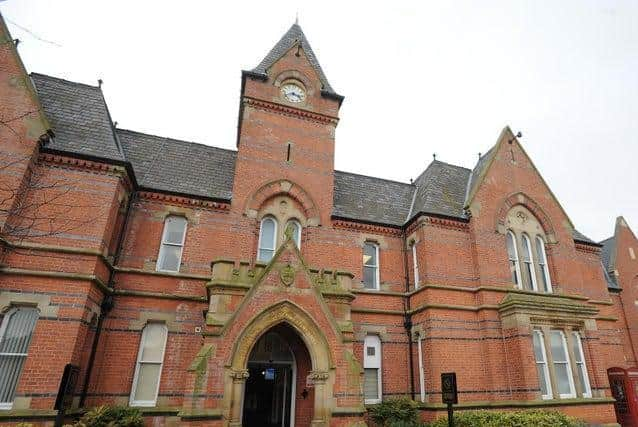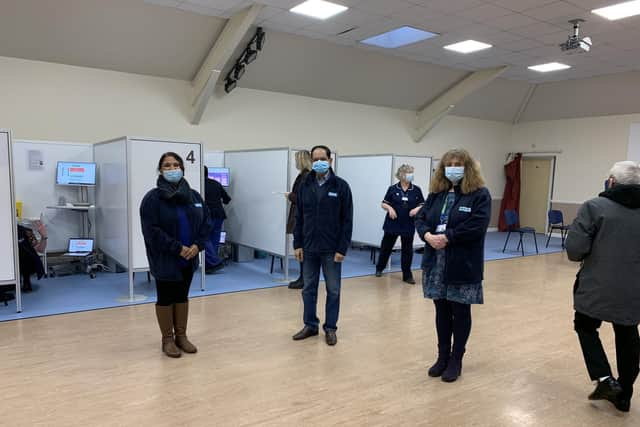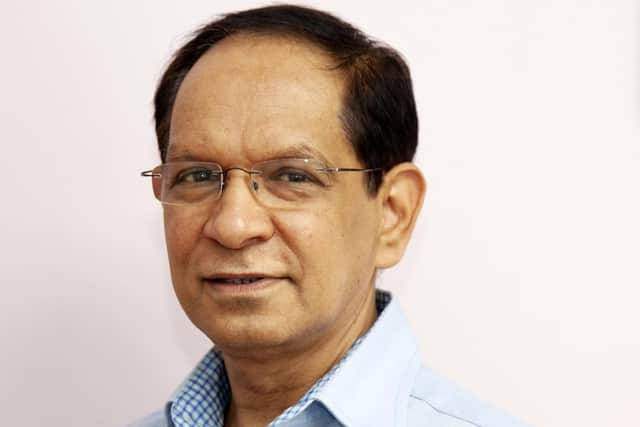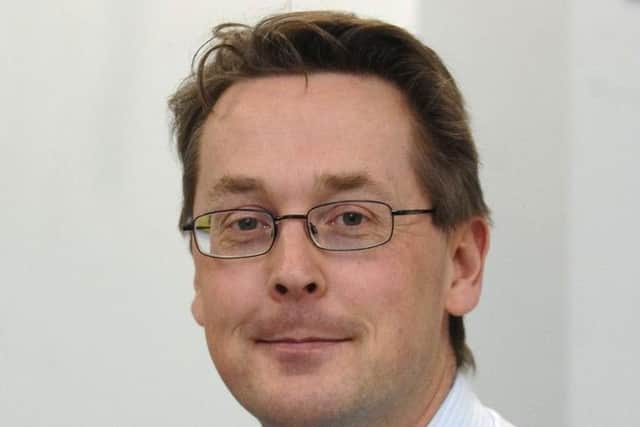Wigan's hospital 'in dire situation' as Covid-19 admissions rise, doctors admit
and live on Freeview channel 276
Wigan’s frontline NHS is in “a dire situation” which is expected to only get worse in the coming days, a medical boss has warned.
Doctors at Wigan Infirmary are “very concerned” about the pressures they will face in the next two weeks, with Covid-19 cases projected to keep increasing. Frontline staff are close to burnout, but still carrying out their duties “with smiles on their faces”.
Advertisement
Hide AdAdvertisement
Hide AdAnd the only way we can help the NHS cope in one of its toughest periods is to follow the lockdown rules, says Dr Sanjay Arya, a consultant cardiologist and medical director at Wrightington, Wigan and Leigh NHS Trust (WWL).


Dr Arya has been overseeing the hospital’s response to the Covid-19 pandemic since the first lockdown last March.
He said: “The situation is very intense in the hospital. I would use the word ‘dire’. We have a lot of patients with Covid and many of them are very poorly.
“Our critical care capacity is well over 90 per cent full, and our bed capacity is well over 95 per cent occupancy.
Advertisement
Hide AdAdvertisement
Hide Ad“We are expecting that the situation is going to get worse this week, and the week after. So we are really very concerned.”


Despite the sobering picture painted by Dr Arya, he insisted that “the hospital is absolutely open for patients with serious medical conditions like heart attacks, stroke, sepsis, etc. We would encourage such patients to definitely come and seek help, because we will be able to look after them.”
Dr Arya also raised some signs of positivity, saying: “We have now vaccinated over 4,000 people at the hospital. We started five weeks ago. We have given priority to frontline clinical staff so that they are able to look after our critically ill patients.
“We have also worked with Dr Tim Dalton in trying to vaccinate care home staff so that their residents are safe.
Advertisement
Hide AdAdvertisement
Hide Ad“However, our caution to people who’ve received their vaccination is to still follow the lockdown rules, because you do not get immunity immediately. It can take up to 10-14 days. In that time you must still ensure you only leave your home if it is absolutely necessary. If you do, make sure you wear a mask, keep social distancing, and wash your hands regularly.


“Because of the intense pressure on the hospital, we are having to look at urgent operations. We are trying to carry them out for as long as we can, and we are also working with other hospitals in Greater Manchester and seeing if our doctors can go there and operate in the hospitals that have the capacity.
“So it’s not that we have completely stopped these urgent operations, but we are looking at all opportunities to continue to do them within our own hospital and other hospitals.”
The hospital has also stepped up its critical care plan, which involved creating more space for beds in the Intensive Care Unit for critically ill patients, as well as increasing support for ICU staff to meet the increased demand.
Advertisement
Hide AdAdvertisement
Hide AdDr Arya said that staff morale was being tested by the pandemic, but that care was still delivered to the high standards. He said: “This has been a 10 month journey with no definite end, both in the primary care and secondary care. Our staff have worked almost non-stop, and they are tired, they are exhausted.


“Unfortunately, many staff have suffered from Covid themselves and are having to isolate, which puts additional pressure on the rest of the staff. But I can certainly say that when I go to the wards, and people are working with a smile on their face, doing every little bit and going the extra mile to help our patients.”
Dr Dalton, Chair of Wigan borough’s Clinical Commissioning Group, said that GPs also remained very busy during the third national lockdown.
He said: “General practice remains very busy, during the usual work. It is busier in January than other times of the year because of the normal illnesses at this time of year. Covid itself has then added to that workload.
Advertisement
Hide AdAdvertisement
Hide Ad“We were in the middle of catching up from waves one and two, but as Sanjay described, with the pressure hitting the hospital, we are having to support them to make sure the right clinicians see the right patient for the right reason.
“The biggest message we have for the public is those basic public health messages - it is about washing your hands, wearing a face mask and keeping your distance.
“We absolutely recognise that the public has been through 10 months of significant hardship, and it’s really hard and difficult.
“It does feel that, with the vaccines coming, maybe we can relax a bit. It is really important we don’t.
Advertisement
Hide AdAdvertisement
Hide Ad“The rules are clear about what we can and can’t do to help prevent this disease spreading.”
Dr Dalton revealed that more than 6,000 Wiganers have been vaccinated at the borough’s two main jab centres at Leigh Sports Village and Robin Park, with most of those receiving the jab being the over-80s and frontline healthcare staff.
Work is also underway to vaccinate all borough care home residents, all 2000 of which are on course to have received their vaccines by the end of the month.
Dr Arya said: “This is a very serious, deadly virus. We are hoping that there will be an end soon.
Advertisement
Hide AdAdvertisement
Hide Ad“We do understand it must be very difficult for the public, and we are working through vaccination and the lockdown, and hope that this is all over soon.”
In years gone by, the winter months have seen queues of ambulances waiting to drop off patients at A&E.
“However, this year the sight of queuing ambulances has been surprisingly absent.
“It may look as if the pressures are not there,” said Dr Arya, who said there were three key reasons for a lack of queues.
Advertisement
Hide AdAdvertisement
Hide AdHe said: “Our GP colleagues are trying their best to keep patients out of hospital by working really hard and long hours. Secondly, our population are choosing to only come to hospital if they really need to.
“And the third reason is that we make sure the whole patient journey is made seamless and we avoid overcrowding of the A&E. That is having its toll because it’s putting pressure on the staff. But they have been doing it anyway, because it is a vocation.”
Dr Arya added that the hospital’s virtual clinics for vulnerable patients were also reducing the number of people being taken to A&E.
Thanks for reading. If you value what we do and are able to support us, a digital subscription is just £1 for your first month. Try us today by clicking here and viewing our offers.